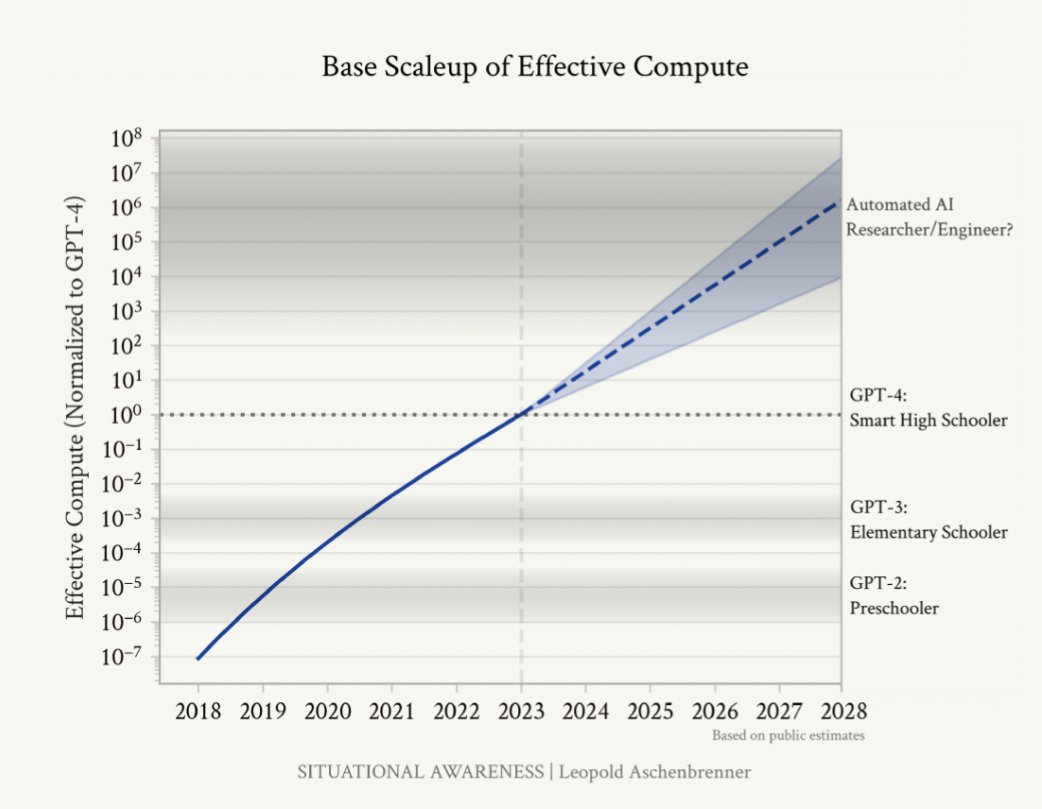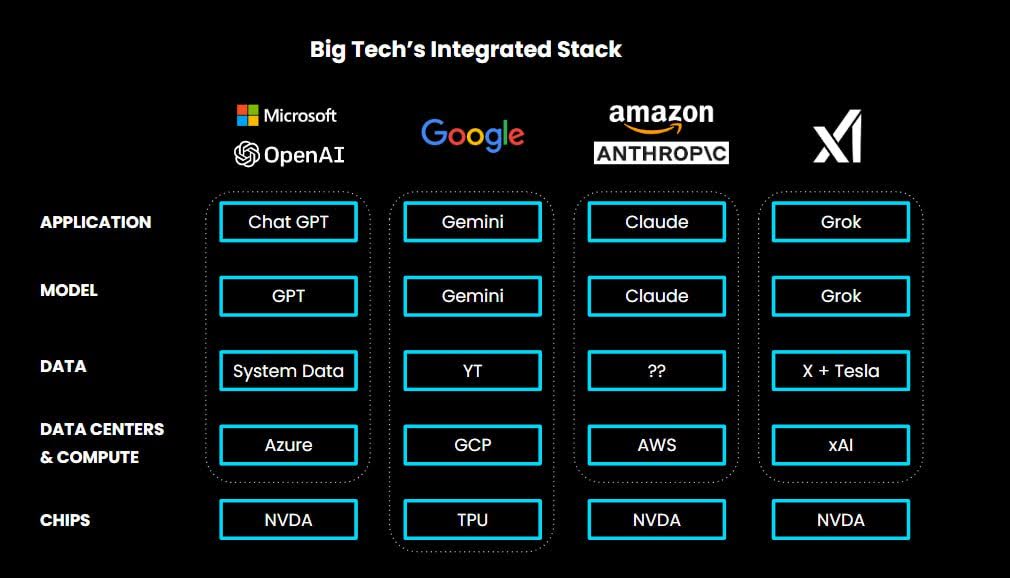By Luke Saunders (@lukedelphi) and Jose Macedo (@ZeMariaMacedo)
AI represents arguably the biggest technological revolution in history, and has kickstarted a technological arms race the likes of which the world has never seen before. Current AI models are already scoring in the top decile on most standardized college tests and outperforming humans at many tasks including AI research itself. Even at its current level, this is already transformative to many industries such as search, customer service, content creation, programming, education, and more.We expect AI capabilities, funding, and its effect on society to only accelerate from here. All the big tech giants understand AI is existential to their businesses and are investing accordingly. NVIDIA revenue, arguably the best proxy for AI CapEx, is on track for over $100b in 2024, more than double that of 2023, >4x that of the year prior.
Google CEO Sundar Pichai on AI investments:“The risk of underinvesting is dramatically greater than the risk of overinvesting for us here.”At the same time, startups sense AI is a disruptive force with which they can unseat multi-decade incumbents and an estimated $83b has been invested into AI startups over the last 18 months. Given that AI capabilities have tended to scale exponentially with the compute applied to them, it’s very likely we will reach something like AGI within the decade.
Source: Situational Awareness by @leopoldasch
In this piece, we argue that competitive dynamics will result in a world of millions of models, and crypto is the ideal substrate for this many-model world. We’ll start by discussing why we think a many-models world is the logical end-game for AI. We then go over the unique differentiators crypto provides to AI. Finally, we cover the crypto x AI stack as we see it, and provide specific examples of the kinds of projects we’re excited about.
There are strong philosophical and moral reasons why open-source AI and crypto x AI is a better state of affairs for humanity, and these are excellently covered elsewhere. While we agree with them entirely and this is part of what motivates us to build in this space, for the purposes of this piece will focus purely on the practical reasons why crypto x AI will win, rather than the moral arguments for why it should win.God-model vs many-models
Right now, we’re tracking towards a world where a few, large vertically-integrated tech companies produce “God-models” that dominate everything else.- Rug risk: Organisations, entrepreneurs and developers building experiences on top of AI don’t want to be dependent on a single closed-source company which can change the model, alter the terms of use, or even stop serving them entirely.
- Cost-performance-tradeoff: The extremely large, generalised models favoured by the big tech companies

